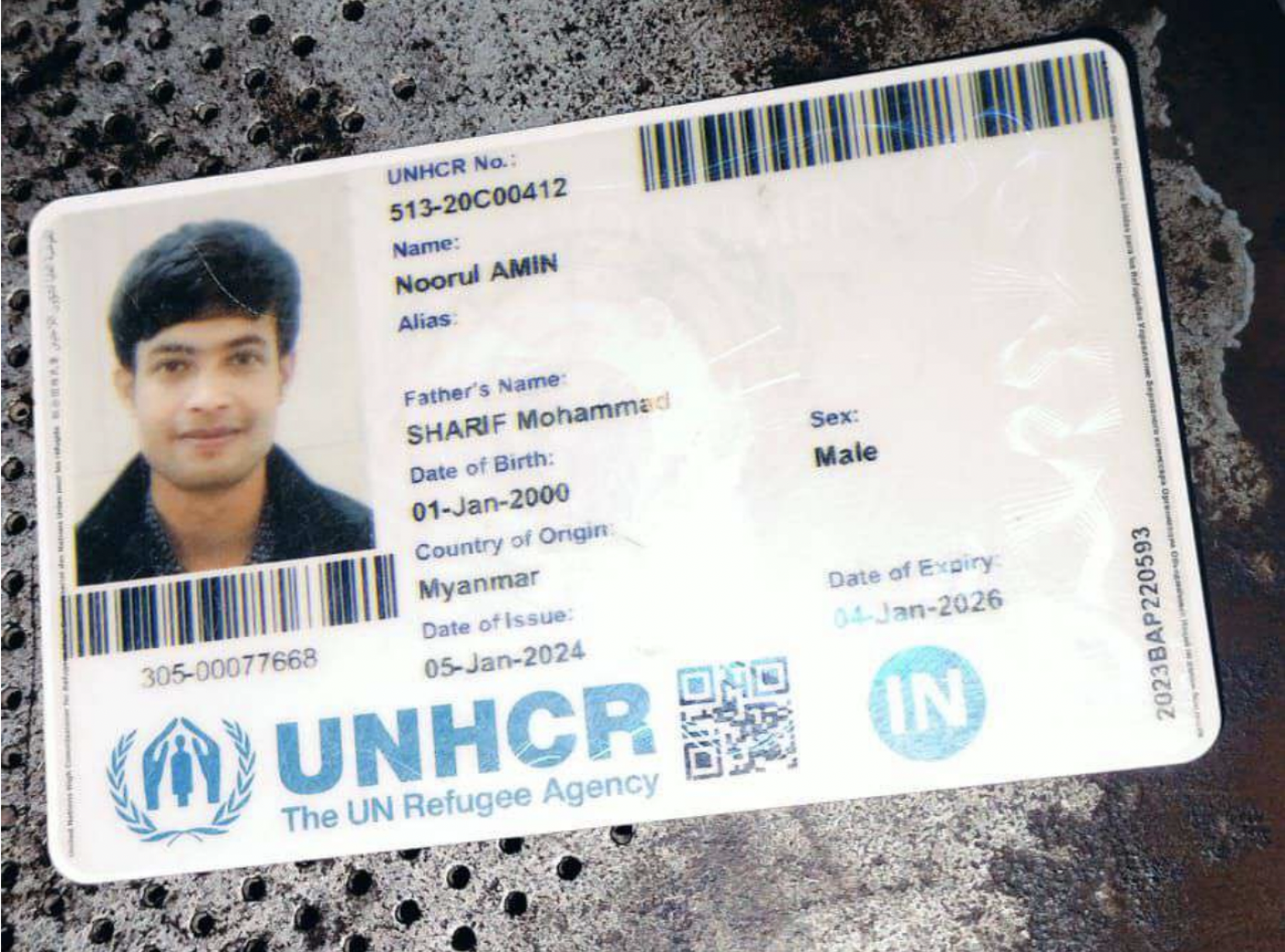
Delhi: Two months after his parents—Nazir Ahmed and Hazara Khatoon—were allegedly abandoned at sea by the Indian government, Joy Nazir, a 24-year-old Rohingya Christian refugee from Myanmar, said he has had no contact with them.
“Days and nights are passing by, but life for us has frozen at that moment,” he said.
Prime Minister Narendra Modi’s government allegedly forced 43 Rohingya refugees—Christian and Muslim—off an Indian naval ship and into the Andaman Sea with only life jackets on 8 May 2025, according to a petition filed by the relatives of two of them in the Supreme Court on 10 May.
They swam to the shore of Myanmar, a Buddhist majority country ruled by a military junta, where Rohingya’s have faced mass killings, rape, and destruction of their villages because of their religion and ethnicity.
In addition to Nazir, Article 14 spoke with four other refugees—Sadeq Shalom, Sayed Josiah, Mohammed Ismail, and Noorul Amin—who said they had not heard about their families ever since Shalom received a call from his elder brother, Anwar, who informed them that they had arrived in Myanmar on 8 May.
A month after that, on 9 June, Joy Nazir’s brother, David Nazir, spoke with a contact inside Myanmar, who told him the refugees were alive and in a shelter in the Tanintharyi region, the country’s southernmost tip, but he could not organise any direct contact with their family members.
“We pray, we hope, we fear the worst,” said Nazir, describing the situation as “heartbreaking”.
‘Police Slapped, Punched Me’
This second conversation with Nazir took place over the phone on 29 June, close to a month after he and other Rohingya refugees left Delhi, after their relatives were rounded up and illegally deported despite having refugee cards issued by the UNHCR—the United Nations High Commissioner for Refugee—a recognition of their refugee status.
This story was originally published in article-14.com. Read the full story here.

